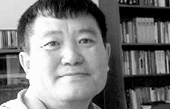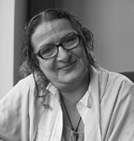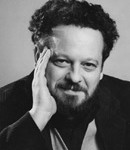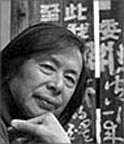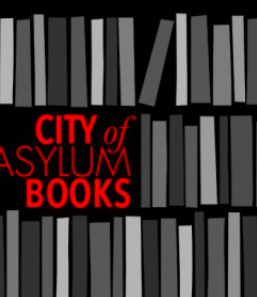Sampsonia Way Contributors
 Silvia Duarte is the founding editor of Sampsonia Way. She received her degree in Communication Sciences from Rafael Landivar University in Guatemala and her masters in Latin American studies from the Autonomous University of Madrid in Spain. Duarte was editor of El Periódico de Guatemala’s Sunday magazine from 2001 to 2006 and has written scholarly and journalistic articles in Germany, Spain, and the United States. She came to Pittsburgh in 2007 with her partner writer-in-exile Horacio Castellanos.
Silvia Duarte is the founding editor of Sampsonia Way. She received her degree in Communication Sciences from Rafael Landivar University in Guatemala and her masters in Latin American studies from the Autonomous University of Madrid in Spain. Duarte was editor of El Periódico de Guatemala’s Sunday magazine from 2001 to 2006 and has written scholarly and journalistic articles in Germany, Spain, and the United States. She came to Pittsburgh in 2007 with her partner writer-in-exile Horacio Castellanos.
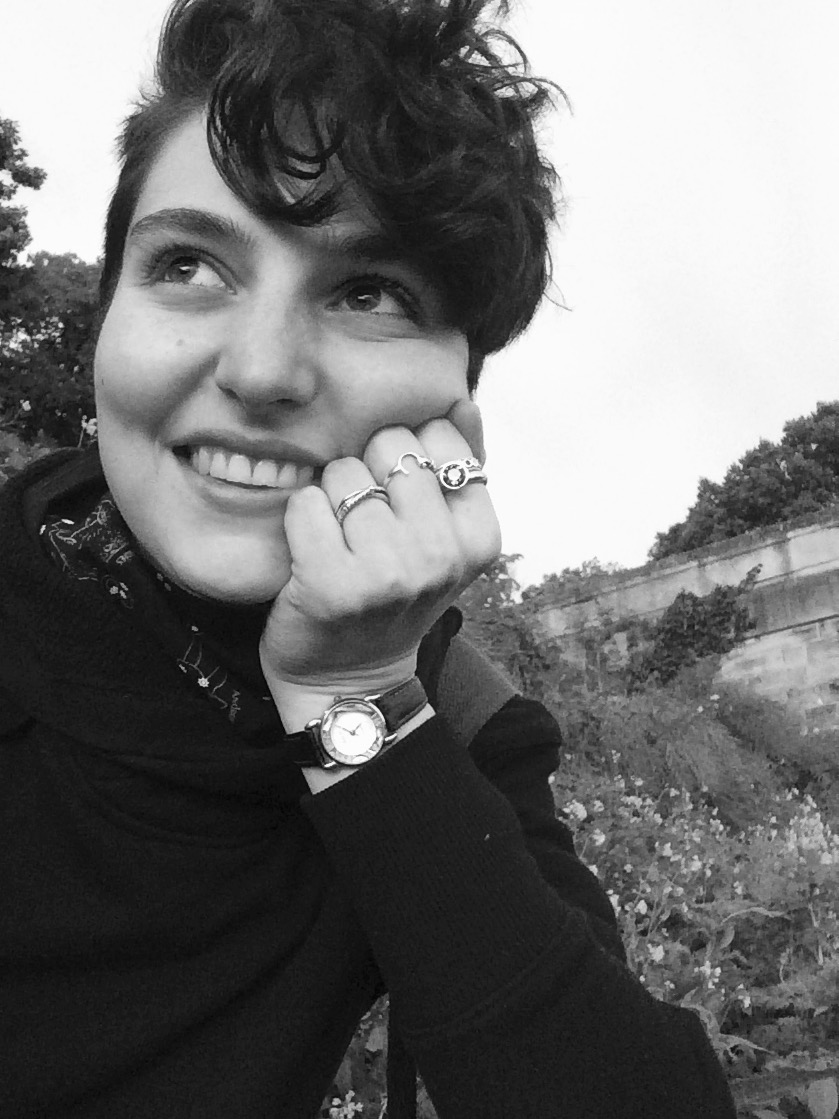 Abigail Meinen served as Associate Editor for Sampsonia Way. They studied Writing and Global Studies at the University of Pittsburgh. Abigail worked as an editorial intern with Sampsonia Way in 2016, and joined the magazine’s staff in 2017. They also work as a creative writing coordinator with the Alliance for Refugee Youth Support and Education (ARYSE).
Abigail Meinen served as Associate Editor for Sampsonia Way. They studied Writing and Global Studies at the University of Pittsburgh. Abigail worked as an editorial intern with Sampsonia Way in 2016, and joined the magazine’s staff in 2017. They also work as a creative writing coordinator with the Alliance for Refugee Youth Support and Education (ARYSE).
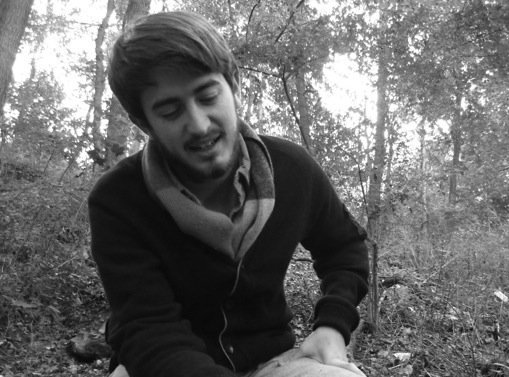 T.J. Murphy is the Audio Visual Technician for Sampsonia Way & City of Asylum. He studied film theory and editing at Pittsburgh Filmmakers and is an active board member for ReelQ, Pittsburgh’s LGBT film festival. He has traveled to China, the Czech Republic, England, and Ireland.
T.J. Murphy is the Audio Visual Technician for Sampsonia Way & City of Asylum. He studied film theory and editing at Pittsburgh Filmmakers and is an active board member for ReelQ, Pittsburgh’s LGBT film festival. He has traveled to China, the Czech Republic, England, and Ireland.
 Francisco Aragón is a native of San Francisco and a former long-term resident of Spain, while also the author of Puerta del Sol and Glow of Our Sweat. He is also the editor of the award-winning The Wind Shifts: New Latino Poetry. His work has appeared in a range of anthologies as well. His poems and translations have also appeared in various print and web publications, including, Chain, Crab Orchard Review, Chelsea, The Journal, the online venues, Jacket, Electronic Poetry Review, and Poetry Daily. He directs Letras Latinas—the literary program of the Institute for Latino Studies at the University of Notre Dame. He is also the editor of Canto Cosas, a book series from Bilingual Press featuring new Latino and Latina poets. He is a CantoMundo fellow and a member of the Macondo Writers’ Workshop in San Antonio. He also serves as a Vice President on the board of the Association of Writers and Writing Programs. Read more information about Aragon here.
Francisco Aragón is a native of San Francisco and a former long-term resident of Spain, while also the author of Puerta del Sol and Glow of Our Sweat. He is also the editor of the award-winning The Wind Shifts: New Latino Poetry. His work has appeared in a range of anthologies as well. His poems and translations have also appeared in various print and web publications, including, Chain, Crab Orchard Review, Chelsea, The Journal, the online venues, Jacket, Electronic Poetry Review, and Poetry Daily. He directs Letras Latinas—the literary program of the Institute for Latino Studies at the University of Notre Dame. He is also the editor of Canto Cosas, a book series from Bilingual Press featuring new Latino and Latina poets. He is a CantoMundo fellow and a member of the Macondo Writers’ Workshop in San Antonio. He also serves as a Vice President on the board of the Association of Writers and Writing Programs. Read more information about Aragon here.
 Renée Alberts listens to rivers and shortwave radio to create poetry, collage, sound, and photography. Her poetry collection No Water came out in 2009. She curates Carnegie Library of Pittsburgh’s Sunday Poetry & Reading Series, for which she edited Natural Language, an anthology of 35 academic, experimental, and spoken word poets. Alberts recently embarked on the Cut and Run Word Tour with inksister Nikki Allen and is currently guest host of 91.3 WYEP’s Prosody, a weekly show featuring the work of poets and writers. She posts writing and artwork at animalprayer.com.
Renée Alberts listens to rivers and shortwave radio to create poetry, collage, sound, and photography. Her poetry collection No Water came out in 2009. She curates Carnegie Library of Pittsburgh’s Sunday Poetry & Reading Series, for which she edited Natural Language, an anthology of 35 academic, experimental, and spoken word poets. Alberts recently embarked on the Cut and Run Word Tour with inksister Nikki Allen and is currently guest host of 91.3 WYEP’s Prosody, a weekly show featuring the work of poets and writers. She posts writing and artwork at animalprayer.com.
Assurbanipal Babilla is a playwright, painter, writer and translator. He was born in Tehran, Iran, and studied theology in Beirut. His plays have been produced in Beirut, Tehran, Los Angeles, and New York. He has traveled extensively around the United States and Europe to perform with his theater group Purgatorio Ink.
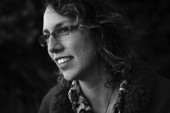 Hinemoana Baker is a writer, musician and radio producer living on Wellington’s Kapiti Coast. In this compelling second collection from one of New Zealand’s most exciting rising poets, Baker amplifies what’s usually whispered, magnifies the microscopic and x-rays the mundane. Born in Christchurch, she has travelled widely, and was 2009 Arts Queensland Poet in Residence. Her first book, published jointly by VUP and in the US by Perceval Press, was matuhi | needle. Read more on her website.
Hinemoana Baker is a writer, musician and radio producer living on Wellington’s Kapiti Coast. In this compelling second collection from one of New Zealand’s most exciting rising poets, Baker amplifies what’s usually whispered, magnifies the microscopic and x-rays the mundane. Born in Christchurch, she has travelled widely, and was 2009 Arts Queensland Poet in Residence. Her first book, published jointly by VUP and in the US by Perceval Press, was matuhi | needle. Read more on her website.
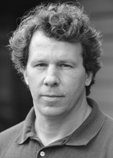 Jonathan Barnes is a Pittsburgh-based journalist and freelance writer whose essays have been published in the Pittsburgh Post-Gazette, ENR magazine, TPQ Online and other publications. Barnes earned a B.A. in Professional Writing and Creative Writing from Carnegie Mellon University. Read more on his blog, Barnestormin.
Jonathan Barnes is a Pittsburgh-based journalist and freelance writer whose essays have been published in the Pittsburgh Post-Gazette, ENR magazine, TPQ Online and other publications. Barnes earned a B.A. in Professional Writing and Creative Writing from Carnegie Mellon University. Read more on his blog, Barnestormin.
 Peter Blair is the author of three volumes of poetry including The Divine Salt and Last Heat, which won the Washington Prize in 1999 and was published by Word Works Press. Born in Pittsburgh, he has worked in a psychiatric ward, a steel mill, and served three years in the Peace Corps in Thailand. Currently, he teaches at the University of North Carolina at Charlotte.
Peter Blair is the author of three volumes of poetry including The Divine Salt and Last Heat, which won the Washington Prize in 1999 and was published by Word Works Press. Born in Pittsburgh, he has worked in a psychiatric ward, a steel mill, and served three years in the Peace Corps in Thailand. Currently, he teaches at the University of North Carolina at Charlotte.
Louis Paul Boon’s (1912–1979) oeuvre spans several genres, including historical epics, newspaper columns, and scabrous novels such as Chapel Road and Summer in Termuren.
 Brenda Cárdenas is a writer, author, and poet. Her chapbook of poetry From the Tongues of Brick and Stone was published by Momotombo Press in 2005. She also coedited Between the Heart and the Land: Latina Poets in the Midwest (2001). Her work has appeared in a range of publications including Achiote Seeds , The City Visible: Chicago Poetry for the New Century, The Wind Shifts: New Latino Poetry, U.S. Latino Literature Today, Prairie Schooner, RATTLE: Poetry for the 21 st Century , and Poetry Daily , among others. With Sonido Ink (quieto), a spoken word and music ensemble, she coproduced and released the CD , Illnoize: The Blue Island Sessions (2001). Cárdenas is an assistant professor in the Creative Writing program at the University of Wisconsin-Milwaukee.
Brenda Cárdenas is a writer, author, and poet. Her chapbook of poetry From the Tongues of Brick and Stone was published by Momotombo Press in 2005. She also coedited Between the Heart and the Land: Latina Poets in the Midwest (2001). Her work has appeared in a range of publications including Achiote Seeds , The City Visible: Chicago Poetry for the New Century, The Wind Shifts: New Latino Poetry, U.S. Latino Literature Today, Prairie Schooner, RATTLE: Poetry for the 21 st Century , and Poetry Daily , among others. With Sonido Ink (quieto), a spoken word and music ensemble, she coproduced and released the CD , Illnoize: The Blue Island Sessions (2001). Cárdenas is an assistant professor in the Creative Writing program at the University of Wisconsin-Milwaukee.
 Maxine Case is a South African writer. Her first published short story, ‘Homing Pigeons’ appeared in the collection African Compass: New Writing from Southern Africa. “Homing Pigeons” has since been translated into Italian and Japanese. Her debut novel, All We Have Left Unsaid, won the 2007 Commonwealth Writers’ Prize for Best First Book, Africa region and was the joint winner of the Herman Charles Bosman Prize 2007. Case has written for a variety of publications, including Real Simple, Reader’s Diges,t and O Magazine. In 2009-2010, Case was a fellow of the University of Iowa’s International Writing Program and a writer-in-residence at the City of Asylum/Pittsburgh. Currently, Case is a Ford Fellow and MFA candidate in creative writing specializing in nonfiction tat the New School in New York.
Maxine Case is a South African writer. Her first published short story, ‘Homing Pigeons’ appeared in the collection African Compass: New Writing from Southern Africa. “Homing Pigeons” has since been translated into Italian and Japanese. Her debut novel, All We Have Left Unsaid, won the 2007 Commonwealth Writers’ Prize for Best First Book, Africa region and was the joint winner of the Herman Charles Bosman Prize 2007. Case has written for a variety of publications, including Real Simple, Reader’s Diges,t and O Magazine. In 2009-2010, Case was a fellow of the University of Iowa’s International Writing Program and a writer-in-residence at the City of Asylum/Pittsburgh. Currently, Case is a Ford Fellow and MFA candidate in creative writing specializing in nonfiction tat the New School in New York.
 Desiree Cooper is a regular contributor to Sampsonia Way. A former Pulitzer-prize nominated columnist with the Detroit Free Press, she has also been a national public radio host and contributor to the BBC. She has won awards for her short stories and poems, and will be included in the upcoming “Best African American Fiction 2010,” guest edited by Nikki Giovanni.
Desiree Cooper is a regular contributor to Sampsonia Way. A former Pulitzer-prize nominated columnist with the Detroit Free Press, she has also been a national public radio host and contributor to the BBC. She has won awards for her short stories and poems, and will be included in the upcoming “Best African American Fiction 2010,” guest edited by Nikki Giovanni.
 Toi Derricotte is a nationally-renowned poet and English professor at the University of Pittsburgh. She has won two Pushcart Prizes, and fellowships from the National Endowment for the Arts, the Rockefeller Foundation and the Guggenheim. She is the co-founder of Cave Canem, a residency program for emerging black poets.
Toi Derricotte is a nationally-renowned poet and English professor at the University of Pittsburgh. She has won two Pushcart Prizes, and fellowships from the National Endowment for the Arts, the Rockefeller Foundation and the Guggenheim. She is the co-founder of Cave Canem, a residency program for emerging black poets.
 Lisa Dillman translates from the Spanish and Catalan and teaches at Emory University in Atlanta. Her most recent translations include Juan Filloy’s Op Oloop and Andrés Barba’s latest novel, Such Small Hands. In March 2009, she qualified for the Boston Marathon.
Lisa Dillman translates from the Spanish and Catalan and teaches at Emory University in Atlanta. Her most recent translations include Juan Filloy’s Op Oloop and Andrés Barba’s latest novel, Such Small Hands. In March 2009, she qualified for the Boston Marathon.
Robert Dorsett’s translations of Chinese poetry have appeared in The Kenyon Review, The Seneca Review, The Literary Review, and Translation among others. His original poetry has appeared in such journals as The Literary Review, Poetry, and North American Review. He studied Chinese at the Yale-in-China program in Hong Kong and earned an M.F.A from New York University, where he also taught creative writing. He earned his M.D. from the State University of New York. Formerly a senior physician for Kaiser Permanente Hospital in Oakland, CA, he is now a full-time writer.
 Miloš Djurdjević is a Croatian poet, essayist and translator. He has published three volumes of poetry, with the fourth forthcoming in 2010. His poems have been included in anthologies of contemporary Croatian poetry, and translated into English, Hungarian and German. The editor of Croatian domain at the PIW – Poetry International Web, a recipient of a fellowship from the Ledig House in New York and Civitiella Raniery Center in Italy, Djurdjevic has also translated the work of Raymond Carver, Leonard Cohen, Charles Wright, Lou Reed, John Fante, Annie Proulx and Don Paterson. He participates courtesy of the Bureau of Educational and Cultural Exchange at the US Department of State. In September, 2009, he was a featured poet at the City of Asylum/Pittsburgh’s Jazz Poetry concert.
Miloš Djurdjević is a Croatian poet, essayist and translator. He has published three volumes of poetry, with the fourth forthcoming in 2010. His poems have been included in anthologies of contemporary Croatian poetry, and translated into English, Hungarian and German. The editor of Croatian domain at the PIW – Poetry International Web, a recipient of a fellowship from the Ledig House in New York and Civitiella Raniery Center in Italy, Djurdjevic has also translated the work of Raymond Carver, Leonard Cohen, Charles Wright, Lou Reed, John Fante, Annie Proulx and Don Paterson. He participates courtesy of the Bureau of Educational and Cultural Exchange at the US Department of State. In September, 2009, he was a featured poet at the City of Asylum/Pittsburgh’s Jazz Poetry concert.
 Lynn Emanuel is the author of four poetry collections: Noose and Hook; Hotel Fiesta; The Dig; and Then, Suddenly-. Her work has been included in the Pushcart Prize anthology, Best American Poetry, and The Oxford Book of American Poetry. Emanuel is the recipient of numerous awards, including the Eric Matthieu King Award from The Academy of American Poets, two National Endowment for the Arts Fellowships, and a National Poetry Series Award. She is professor of English at the University of Pittsburgh.
Lynn Emanuel is the author of four poetry collections: Noose and Hook; Hotel Fiesta; The Dig; and Then, Suddenly-. Her work has been included in the Pushcart Prize anthology, Best American Poetry, and The Oxford Book of American Poetry. Emanuel is the recipient of numerous awards, including the Eric Matthieu King Award from The Academy of American Poets, two National Endowment for the Arts Fellowships, and a National Poetry Series Award. She is professor of English at the University of Pittsburgh.
 Sherrie Flick is the author of the award-winning flash fiction chapbook I Call This Flirting and the novel Reconsidering Happiness. Her work has appeared in many literary journals and anthologies, including Norton’s Flash Fiction Forward and New Sudden Fiction. A recipient of a Pennsylvania Council on the Arts Fellowship, she works in Pittsburgh as a freelance writer and artistic director for the Gist Street Reading Series. View her website here.
Sherrie Flick is the author of the award-winning flash fiction chapbook I Call This Flirting and the novel Reconsidering Happiness. Her work has appeared in many literary journals and anthologies, including Norton’s Flash Fiction Forward and New Sudden Fiction. A recipient of a Pennsylvania Council on the Arts Fellowship, she works in Pittsburgh as a freelance writer and artistic director for the Gist Street Reading Series. View her website here.
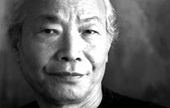 Er Tai Gao was born in 1935 near Nanjing. A former member of the Council of the National Association of Art and Literary Theory. In 1957, he published an essay, “On Beauty,” which contradicted the Communist position on aesthetics and objectivity. At 32, he was sentenced to three years’ hard labor at a camp in the Gobi Desert. The government forbade him to write or publish and he suffered several more imprisonments until 1992, when he and his wife, painter Maya Gao, escaped to Hong Kong. In 2003, he became the first writer in exile at the first United States City of Refuge at the University of Nevada-Las Vegas. He is currently a fellow at the International Institute of Modern Letters at the University of Nevada. His book, Fragments in the Sand, translated from the Chinese by David Pollard & Robert Dorsett, was published by HarperCollins in 2009. His memoir, In Search of My Homeland, is forthcoming from HarperCollins.
Er Tai Gao was born in 1935 near Nanjing. A former member of the Council of the National Association of Art and Literary Theory. In 1957, he published an essay, “On Beauty,” which contradicted the Communist position on aesthetics and objectivity. At 32, he was sentenced to three years’ hard labor at a camp in the Gobi Desert. The government forbade him to write or publish and he suffered several more imprisonments until 1992, when he and his wife, painter Maya Gao, escaped to Hong Kong. In 2003, he became the first writer in exile at the first United States City of Refuge at the University of Nevada-Las Vegas. He is currently a fellow at the International Institute of Modern Letters at the University of Nevada. His book, Fragments in the Sand, translated from the Chinese by David Pollard & Robert Dorsett, was published by HarperCollins in 2009. His memoir, In Search of My Homeland, is forthcoming from HarperCollins.
Sam Garrett won the 2009 Vondel Translation Prize for his translation of Ararat by Frank Westerman. He has translated books by Karel Glastra van Loon, Arnon Grunberg, Tim Krabbé, Lieve Joris, Geert Mak, and Nanne Tepper, among others. Currently he divides his time between Amsterdam and the French Pyrenees.
 Yona Harvey is a Pittsburgh poet whose recent poems have appeared in Rattle and Bat City Review.
Yona Harvey is a Pittsburgh poet whose recent poems have appeared in Rattle and Bat City Review.
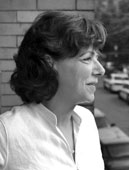 Roberta Hatcher teaches French at Duquesne University in Pittsburgh. She is the author of a poetry chapbook Boundary Waters, and her poems have appeared in The Comstock Review, YAWP, and the Pittsburgh Post-Gazette, among others. She earned her Ph.D. from the University of Wisconsin-Madison, specializing in the literature and film of francophone sub-Saharan Africa.
Roberta Hatcher teaches French at Duquesne University in Pittsburgh. She is the author of a poetry chapbook Boundary Waters, and her poems have appeared in The Comstock Review, YAWP, and the Pittsburgh Post-Gazette, among others. She earned her Ph.D. from the University of Wisconsin-Madison, specializing in the literature and film of francophone sub-Saharan Africa.
Terrance Hayes received an MFA in poetry from the University of Pittsburgh. He was the recipient of a 1999 Whiting Writers Award, and his first collection of poetry, Muscular Music, was the winner of the Kate Tufts Discovery Award in 2000. He is currently an assistant professor of English at Carnegie Mellon University in Pittsburgh.
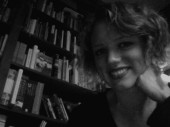 Elizabeth Hoover earned her MFA in Creative Writing from Indiana University, where she received a Project on African Expressive Traditions grant and the Won-Joon Yon Scholarship for Racial Tolerance. She has written for American Heritage, Life, and Poets and Writers. Her criticism has appeared in the Los Angeles Times, the Philadelphia Inquirer, and the Pittsburgh Post-Gazette. She has published poetry in The Adirondack Review, Hayden’s Ferry Review,and the Atlanta Review. Recently, New Letters nominated her for a Pushcart Prize. Hoover was the associate editor of Sampsonia Way.
Elizabeth Hoover earned her MFA in Creative Writing from Indiana University, where she received a Project on African Expressive Traditions grant and the Won-Joon Yon Scholarship for Racial Tolerance. She has written for American Heritage, Life, and Poets and Writers. Her criticism has appeared in the Los Angeles Times, the Philadelphia Inquirer, and the Pittsburgh Post-Gazette. She has published poetry in The Adirondack Review, Hayden’s Ferry Review,and the Atlanta Review. Recently, New Letters nominated her for a Pushcart Prize. Hoover was the associate editor of Sampsonia Way.
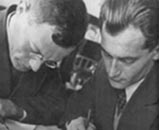 Ilya Ilf (1897–1937) and Evgeny Petrov (1903–1942) were the pseudonyms of Ilya Arnoldovich Faynzilberg and Evgeny Petrovich Katayev, a pair of Soviet writers who met in Moscow in the 1920s while working on the staff of a newspaper that was distributed to railway workers. The foremost comic novelists of the early Soviet Union (invariably referred to as Ilf & Petrov), the pair collaborated together for a dozen years, writing two of the most revered and loved Russian novels, The Twelve Chairs and The Golden Calf, as well as various humorous pieces for Pravda and other publications. Their collaboration came to an end following the death of Ilya Ilf in 1937—he had contracted tuberculosis while the pair was traveling the United States researching the book that eventually became Little Golden America.
Ilya Ilf (1897–1937) and Evgeny Petrov (1903–1942) were the pseudonyms of Ilya Arnoldovich Faynzilberg and Evgeny Petrovich Katayev, a pair of Soviet writers who met in Moscow in the 1920s while working on the staff of a newspaper that was distributed to railway workers. The foremost comic novelists of the early Soviet Union (invariably referred to as Ilf & Petrov), the pair collaborated together for a dozen years, writing two of the most revered and loved Russian novels, The Twelve Chairs and The Golden Calf, as well as various humorous pieces for Pravda and other publications. Their collaboration came to an end following the death of Ilya Ilf in 1937—he had contracted tuberculosis while the pair was traveling the United States researching the book that eventually became Little Golden America.
 Meena Kandasamy is a poet, essayist and fiction writer from India. She debuted with the poetry collection Touch (2006), and has since published in The Little Magazine, the Quarterly Literary Review, Singapore, and elsewhere. A former editor of The Dalit that reflects the voice of India’s ex-untouchables, she has also translated the writings of the Tamil Eelam leaders. In 2007 she was selected for 21 under 40: New Fiction for a New Generation, the Zubaan Anthology of Young Women Writing in South Asia. Her collection of short-stories Black Magic will be published later this year. She is a contributing editor to Muse India and writes for the feminist blog Ultra Violet. She participates courtesy of the Bureau of Educational and Cultural Exchange at the US Department of State. In September, 2009, he was a featured poet in the City of Asylum/Pittsburgh’s Jazz Poetry concert. Read more about Meena on her blog, here.
Meena Kandasamy is a poet, essayist and fiction writer from India. She debuted with the poetry collection Touch (2006), and has since published in The Little Magazine, the Quarterly Literary Review, Singapore, and elsewhere. A former editor of The Dalit that reflects the voice of India’s ex-untouchables, she has also translated the writings of the Tamil Eelam leaders. In 2007 she was selected for 21 under 40: New Fiction for a New Generation, the Zubaan Anthology of Young Women Writing in South Asia. Her collection of short-stories Black Magic will be published later this year. She is a contributing editor to Muse India and writes for the feminist blog Ultra Violet. She participates courtesy of the Bureau of Educational and Cultural Exchange at the US Department of State. In September, 2009, he was a featured poet in the City of Asylum/Pittsburgh’s Jazz Poetry concert. Read more about Meena on her blog, here.
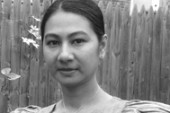 Khet Mar is a former writer-in-residence at City of Asylum/Pittsburgh and a former staff writer at Sampsonia Way. Khet Mar is a journalist, novelist, short story writer, poet, and essayist from Burma. She is the author of one novel, Wild Snowy Night, as well as several collections of short stories, essays and poems. Her work has been translated into English and Japanese, been broadcast on radio, and made into a film. In the fall of 2007, Mar was a visiting fellow at the International Writing Program at the University of Iowa.
Khet Mar is a former writer-in-residence at City of Asylum/Pittsburgh and a former staff writer at Sampsonia Way. Khet Mar is a journalist, novelist, short story writer, poet, and essayist from Burma. She is the author of one novel, Wild Snowy Night, as well as several collections of short stories, essays and poems. Her work has been translated into English and Japanese, been broadcast on radio, and made into a film. In the fall of 2007, Mar was a visiting fellow at the International Writing Program at the University of Iowa.
 Yukiko Konosu is a literary critic and translator of more than sixty books, including J.M.Coetzee’s Disgrace, Margaret Atwood’s The Blind Assassin, Cees Nooteboom’s The Following Story, Virginia Woolf’s To the Light House, and Emily Bronte’s Wuthering Heights. She is also the author of five books on translation criticism. She is one of the originators and partners of a literary group “Critique Without Borders,” and lives in Tokyo with her husband and daughter.
Yukiko Konosu is a literary critic and translator of more than sixty books, including J.M.Coetzee’s Disgrace, Margaret Atwood’s The Blind Assassin, Cees Nooteboom’s The Following Story, Virginia Woolf’s To the Light House, and Emily Bronte’s Wuthering Heights. She is also the author of five books on translation criticism. She is one of the originators and partners of a literary group “Critique Without Borders,” and lives in Tokyo with her husband and daughter.
 Nancy Krygowski‘s book of poems, Velocity, won the 2006 Agnes Lynch Starrett Poetry Prize from the University of Pittsburgh Press. She’s received grants from the PA Council on the Arts and from the Pittsburgh Foundation, plus residencies at the Jentel Foundation and The Kimmel Nelson Harding Center for the Arts. She works as an adult literacy instructor. View her website here.
Nancy Krygowski‘s book of poems, Velocity, won the 2006 Agnes Lynch Starrett Poetry Prize from the University of Pittsburgh Press. She’s received grants from the PA Council on the Arts and from the Pittsburgh Foundation, plus residencies at the Jentel Foundation and The Kimmel Nelson Harding Center for the Arts. She works as an adult literacy instructor. View her website here.
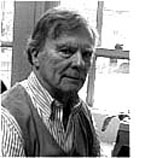 Hilary Masters’ work has been cited in Best American Short Stories, Best American Essays, and Pushcart Prize anthologies. He is the recipient of an American Academy of Arts and Letters Award for Literature, the Balch Prize for Fiction, and the Monroe Spears Prize for essays. His writing has a generosity and delicacy “poignant as a family photograph” and “erudite, engaging, and lovingly detailed. . . almost old-fashioned in its pleasures.” (The New York Times). In September 2009, he published two new books, How the Indians Buried Their Dead and In Rooms of Memory. He has taught creative writing at Carnegie Mellon University since 1983. Read more on his website, here.
Hilary Masters’ work has been cited in Best American Short Stories, Best American Essays, and Pushcart Prize anthologies. He is the recipient of an American Academy of Arts and Letters Award for Literature, the Balch Prize for Fiction, and the Monroe Spears Prize for essays. His writing has a generosity and delicacy “poignant as a family photograph” and “erudite, engaging, and lovingly detailed. . . almost old-fashioned in its pleasures.” (The New York Times). In September 2009, he published two new books, How the Indians Buried Their Dead and In Rooms of Memory. He has taught creative writing at Carnegie Mellon University since 1983. Read more on his website, here.
 Rita Malikonyte Mockus, born in Lithuania, is a classically trained pianist, studies philosophy and has a degree in art history. Her poetry appeared in Salos (Sviesa Press, 1993). She was a featured vocal performer and wrote a cycle of poems set to Antanas Jasenka’s electro-acoustic recording “An Artist and a Plane” for the Electroshock label in 2004. She wrote the lyrics to the work “Yoin,” which was performed at the National Philharmonic of Lithuania in Vilnius. In 2007 she read her poetry at the City of Asylum Jazz Poetry Concert. She is currently a resident of the North Side in Pittsburgh.
Rita Malikonyte Mockus, born in Lithuania, is a classically trained pianist, studies philosophy and has a degree in art history. Her poetry appeared in Salos (Sviesa Press, 1993). She was a featured vocal performer and wrote a cycle of poems set to Antanas Jasenka’s electro-acoustic recording “An Artist and a Plane” for the Electroshock label in 2004. She wrote the lyrics to the work “Yoin,” which was performed at the National Philharmonic of Lithuania in Vilnius. In 2007 she read her poetry at the City of Asylum Jazz Poetry Concert. She is currently a resident of the North Side in Pittsburgh.
Claudia Méndez Arriaza is an editor and reporter for elPeriódico in Guatemala. She is also co-host of the television program “A Las 8:45.” In May she was named a 2012 John S. and James L. Knight Foundation Latin American Nieman Fellow, through which she will attend Harvard University for a year. At Harvard, Méndez Arriaza will study law and the politics of emerging democracies.
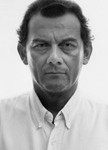 Horacio Castellanos Moya is the senior contributor to Sampsonia Way. A novelist and emeritus writer-in-residence at the City of Asylum/Pittsburgh. Born in Honduras in 1957, he grew up in El Salvador. He has lived in Guatemala, Canada, Costa Rica, Mexico (where he spent twelve years as a journalist, editor, and political analyst), Spain, and Germany. In 1988 he won the National Novel Prize from Central American University for his first novel. His work has been translated into five languages. He has published eight novels. The English translation of his novel Senselessness was published in June 2008 by New Directions. He was the second exiled writer-in-residence at City of Asylum/Pittsburgh and has resided there since 2006.
Horacio Castellanos Moya is the senior contributor to Sampsonia Way. A novelist and emeritus writer-in-residence at the City of Asylum/Pittsburgh. Born in Honduras in 1957, he grew up in El Salvador. He has lived in Guatemala, Canada, Costa Rica, Mexico (where he spent twelve years as a journalist, editor, and political analyst), Spain, and Germany. In 1988 he won the National Novel Prize from Central American University for his first novel. His work has been translated into five languages. He has published eight novels. The English translation of his novel Senselessness was published in June 2008 by New Directions. He was the second exiled writer-in-residence at City of Asylum/Pittsburgh and has resided there since 2006.
Soheil Najm is an Iraqi poet who has published four books: Breaking the Phrase (1994), Your Carpenter O Light (2002), No Window Outside the Window (2008), and the anthology Flowers in Flame (2008). In addition, he has translated selections of work by Nikos Kazantzakis, Alasdair Gray, Ted Hughes, and Jose Saramago. Najm is currently the editor of the Althaqafa Alajnabia “Foreign Culture” journal in Baghdad. He participates courtesy of the Bureau of Educational and Cultural Exchange at the US Department of State. In September, 2009, he was a featured poet in the City of Asylum/Pittsburgh’s Jazz Poetry concert.
Jenelle Pifer is a Pittsburgh-based journalist and freelance writer who has contributed to Pittsburgh City Paper, Pittsburgh Quarterly, and Pitt Magazine, among others, and currently serves as assistant editor of Creative Nonfiction. She received her B.A. in English Writing and B.S. in Marketing from the University of Pittsburgh, where she attended with a Chancellor’s Scholar Nominee Full Tuition Scholarship. As an undergraduate, she studied abroad in both Spain and Chile.
Yi Ping who was born in Beijing in 1952, came of age during the Chinese Cultural Revolution. He was part of the 1989 demonstrations at Tiananmen Square and witnessed the government murder of protestors there. Soon thereafter, he was relieved of his job at a Beijing University and forbidden to teach or publish. Even his previously published works were banned. In 1991, he and his wife, translator Lin Zhou, escaped to Poland before obtaining asylum from the United States government. In 2001, he became the first exiled writer-in-residence at the Ithaca City of Asylum in New York. A playwright, essayist, novelist and poet, Yi Ping edits the web magazine, Human Rights in China, www.hrichina.org.
Sofi Oksanen is a thirty-two-year-old Finnish-Estonian novelist and playwright. Purge is her first third novel and her first to appear in English. The book won both of Finland’s two most prestigious literary awards, the Finlandia and the Runeberg. She recently won the Nordic Council Literature Prize. Read her blog here. (photo by Toni Härkönen)
Nadine Pinède is a magna cum laude graduate of Harvard University and was a Rhodes scholar at Oxford University. She earned her PhD at Indiana University and will receive her MFA in Fiction from the Northwest Institute of Literary Arts. Her work has been published widely, and she is a recipient of fellowships from the Indiana Arts Commission, the Elizabeth George Foundation, and the Atlantic Center for the Arts. Her short story, “Departure Lounge,” will appear in the forthcoming anthology Haiti Noir (Akashic Books 2011), edited by Edwidge Danticat. Read more on her website, here.
David Pollard is a leading scholar and translator of the Chinese essay. He received his M.A. in Chinese from Cambridge University and his Ph.D from London University. Currently, he is an Advisory Editor at Renditions, the Chinese-English translation journal. He has written, translated, and edited numerous volumes, most recently The Chinese Essay, a comprehensive anthology of Chinese literary nonfiction known as sanwen.
Moniro Ravanipour was born in Bushehr, Iran in 1952. She has had eight books published in Iran. Her story, “Satan‘s Stones,” was selected for the groundbreaking anthology of Iranian literature, Strange Times, My Dear (Arcade, 2005). Among her novels in Farsi are The Drowned, Heart of Steel, and Gypsy by Fire. Ravanipour is a member of the Association of Iranian Writers and has been invited to give readings in Austria, France (Iranian Artists Festival), Germany (Berlin Conference and the Goethe Institute), Sweden, Turkey, and the United Kingdom. From January to June 2007, she was a visiting fellow in the International Writers Program at Brown University’s Watson Institute. In late 2006, the Iranian government purged all copies of her current work from bookstores. “Satan‘s Stones” has been banned, and two other novels are currently under review by Iran‘s Ministry of Culture and Islamic Guidance. She is currently a writer-in-residence at the City of Asylum Las Vegas.
Lola Rogers is a freelance translator of Finish literature and a regular contributor to Books from Finland. Her translations of poet Eeva Liisa Manner appeared in the anthology Female Voices of the North. With Owen Witesman, she translated the graphic novel The Sands of Sarasvati, based on Risto Isomäki’s novel of the same name. Currently, she lives in Seattle.
Katherine Silver has translated the works of many Spanish and Latin American authors, including Antonio Skármeta, José Emilio Pacheco, Elena Poniatowska, Martín Adán, Pedro Lemebel, and Jorge Franco. For her translation of Horacio Castellanos Moya’s Senselessness, she received her second NEA fellowship, a PEN Translation Fund grant, and the 2008 NCBA Translation Award. Her collection of modern and contemporary Chilean fiction, Chile, A Traveler’s Literary Companion, was published by Whereabouts Press in 2003. She has translated plays, screenplays—some for major motion pictures—and a wide assortment of academic and other nonfiction books. She also works as an editor and publishing consultant/manager, and lives in Berkeley, California.
Lee Paula Springer works as a freelance translator and copy editor. She lives in Montreal. Her website is www.leepaulaspringer.com.
Christos Tsiolkas is an award-winning novelist, playwright, essayist, and screenwriter. His first novel, Loaded (1995) was adapted into the film Head On (1998), directed by Ana Kokkinos. His fiction has won numerous prizes, including the Commonwealth Writers Award, the Age Fiction Prize, and the Melbourne Best Writing Award. The Slap is his first book published in the United States. (Photo by Zoe Ali.)
Paul Vincent is an award-winning translator of Dutch literature whose translation of Hendrik Marsman’s Herinnering aan Holland earned the David Reid Poetry Translation Prize.
Tommy Wieringa was born in 1967 and grew up in the Netherlands and in the tropics. He is the author of two previous novels Dormantique’s manco and Alles over Tristan, which was awarded the Halewijn Prize and nominated for the AKO Literature Prize. Joe Speedboat is his first novel to be translated into English. It received the 2005 F. Bordewijk Prize and has been sold in ten countries.
Betty Wilson teaches in the Department of Literatures in English at the University of the West Indies, Mona.
Peter Wortsman is the recipient of the Beard’s Fund Short Story Award, and a 2010 Fellow of the American Academy in Berlin. He is the author of A Modern Way to Die: small stories and microtales and two stage plays, The Tattooed Man Tells All and Burning Words. His numerous translations from the German include Posthumous Papers of a Living Author by Robert Musil (Archipelago); Peter Schlemiel, the Man Who Sold His Shadow by Adelbert von Chamisso (Fromm International); Telegrams of the Soul: Selected Prose of Peter Altenberg (Archipelago); and Travel Pictures by Heinrich Heine (Archipelago).
Huang Xiang was born in China’s Hunan Province in 1941, and has been writing poems since 1950. In 1978, he founded an underground writers’ society and a literary magazine both named Enlightenment. Nearly a decade later, he was arrested for his pro-Democracy activities and sentenced to three years of labor and ultimately served twelve years in prison and subject to repeated torture Huang Xiang and his wife have lived in exile in the United States since 1997. In 2004, he became the first resident at the City of Asylum/Pittsburgh. He and his family now live in New York. Highly regarded by his peers as a poetic innovator, Huang Xiang’s works still remain banned in China.
Michelle Yeh is a professor of Chinese literature at the University of California, Davis. Her new publications are A Lifetime Is a Promise to Meet: Poems of Huang Xiang, forthcoming from the Institute of East Asian Studies, University of California at Berkeley; and the last chapter of Cambridge History of Chinese Literature (2 volumes), forthcoming from the Cambridge University Press.




